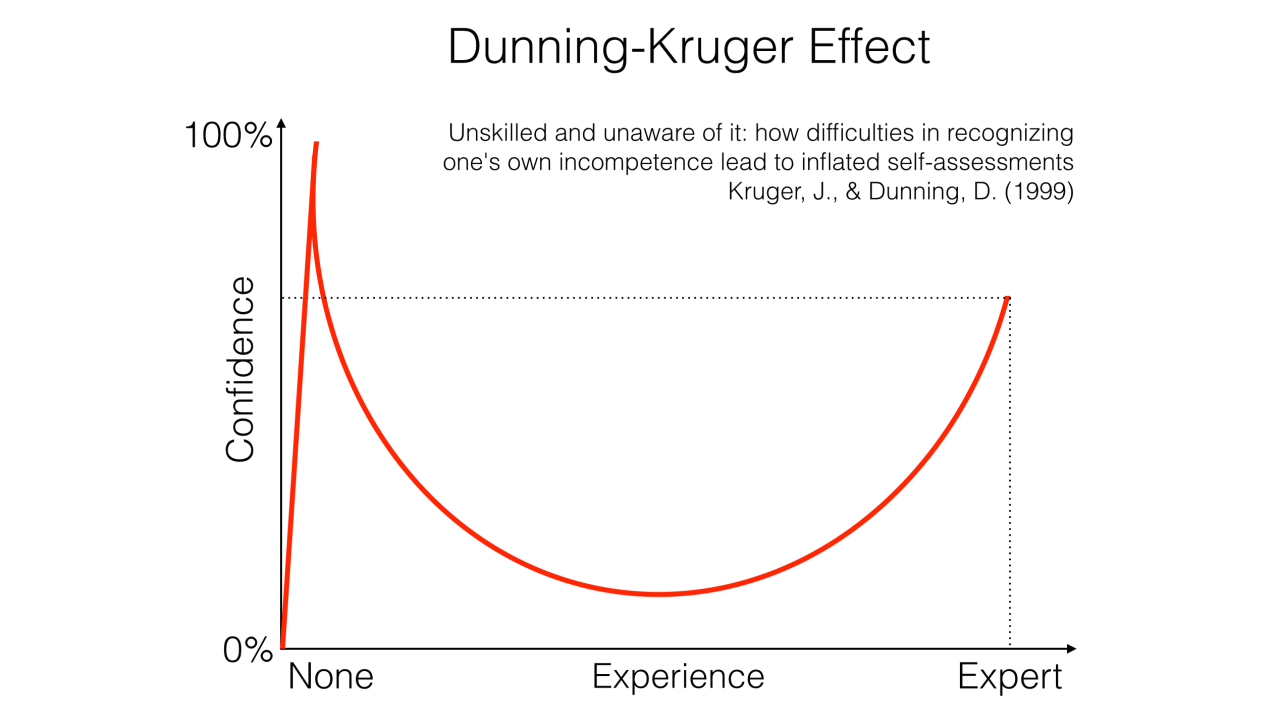Every once in a while, a psychology theory comes along that is so good, I share it with pretty much everyone, not just fellow psychologists or the psychology-oriented friends. And a great example is the Dunning Kruger effect, which I've blogged about so many times. I share it again today, as a psychology for writers post because I think it is such a good descriptor of human behavior that it could easily influence how you write characters.
The Dunning Kruger effect describes the relationship between actual knowledge and perceived competence (how much knowledge you think you have or how well you know a topic). But to even begin to make accurate ratings on your own competence, you need to know enough about that topic, and, most importantly you need to know just how much you don't know.
If that description doesn't make sense, don't worry - I'm about to break things down. People who know very little about a topic and people who know a lot about a topic often rate their perceived competence very similarly. Why? People who know very little about a topic simply don't know enough to know how much there is to know on a topic. So they may underestimate how much work it takes to become an expert. In essence, they ask "How hard can it be?"
But people who have moderate levels of knowledge on a topic rate their competence much lower - lower than people with high levels of knowledge, yes, but also lower than people with low levels of knowledge. They now have enough knowledge on a topic to be aware of how much more work it would take to become an expert.
If you, like me, prefer to see things plotted out to make sense of them, I offer this graph from a Story.Fund post about the Dunning Kruger effect:
And if you'd like a real life example of the Dunning Kruger effect, I know of no better example than our President, who constantly speaks about topics he knows little about as though he were an expert.
What does this mean for your characters? It explains why complete beginners will often charge into something they know little about - and end up in over their heads. This happens a lot in fiction. But it also means that someone with a moderate amount of competence on something will be extremely cautious and not confident in their abilities. It could explain why someone chooses not to help that brash character that rushes in blindly - they don't have to be uncaring or even have poor self esteem to feel that way. They are simply more aware of their shortcomings and gaps in knowledge.

Hi,
ReplyDeleteI am Ronald Banilov, i am a psychology Student, in this blog information you share is helpful and valuable. Thanks for sharing.